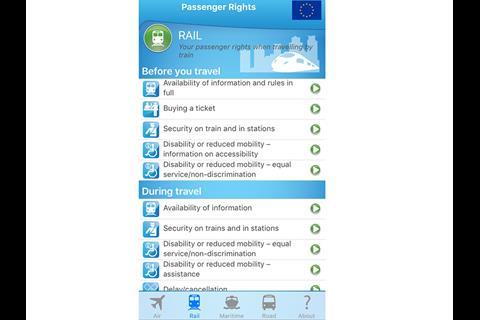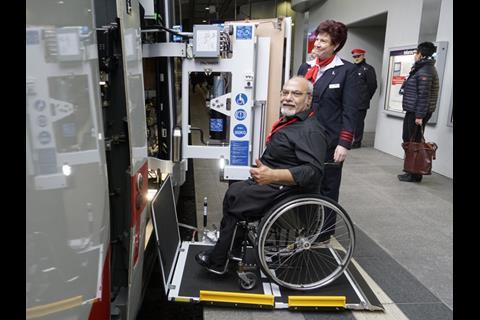EUROPE: A proposal to revise Regulation 1371/2007 on rail passengers’ rights was published by the European Commission on September 28. This must now be examined and adopted by the European Parliament and Council before entering into force.
The Commission said its aim was to update the rules to better protect travellers in the event of delays, cancellations or discrimination, to guarantee ‘adequate’ passenger information and to ‘significantly improve the rights of passengers with disabilities or reduced mobility’. It said the proposal was ‘proportionate’ and recognised that ‘under strict circumstances’ operators could be exempted from having to compensate passengers in the event of delays.
The updates cover five key areas:
1. Long distance domestic and cross-border urban, suburban and regional services can no longer be exempted from passenger rights rules. At present, only Belgium, Denmark, Italy, the Netherlands and Slovenia fully apply the rules.
2. Improved provision of information about passenger rights. In particular, passengers who use connecting services with separate tickets must be informed whether their rights apply to the whole journey or only to the individual segments.
3. Persons with disabilities or reduced mobility would have a mandatory right to assistance on all services and full compensation for loss or repair of mobility equipment. Relevant information must be given in accessible formats, and staff must receive disability awareness training.
4. There must be clear deadlines and procedures for complaint handling, along with clear responsibilities for national enforcement authorities.
5. A force majeure clause would exempt rail companies from having to pay compensation in the event of delays caused by natural catastrophes which they could neither foresee nor prevent. In 2013, the Court of Justice of the European Union ruled that the current regulation does not allow for a force majeure exemption, and railway undertakings have complained that this puts them at a disadvantage compared to other modes with such exemptions.
Welcoming the Commission’s proposal, Chair of the European Parliament’s transport committee Karima Delli said MEPs would ‘very carefully examine’ which exemptions should be granted in cases of force majeure’.
The Community of European Railway & Infrastructure Companies said the industry had invested significant resources in meeting the requirements of the current regulation which came into force in 2009. CER would ‘carefully review’ the Commission's text, and looked forward to a ‘constructive and fruitful exchange of views with the EU institutions and the customers' associations’.
‘It is essential that this revision enables rail operators to keep up the good work in this area to the satisfaction of the customers, without jeopardising the sector's competitiveness’, said CER Executive Director Libor Lochman.



















